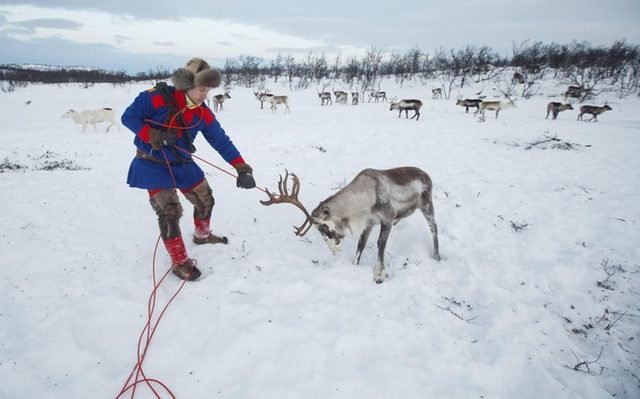An NGO has filed a complaint against a Swiss energy company for investing in a Norwegian wind power project opposed by the indigenous Sami people.
On Thursday, the Society for Threatened Peoplesexternal link (STP) filed a complaint with the Swiss National Contact Pointexternal link of the Organisation for Economic Co-operation and Development (OECD) against the BKW energy company. BKW holds shares in Nordic Wind Power DA – a European consortium of investors founded by Credit Suisse Energy Infrastructure Partners – that holds a 40% stake in the joint venture Fosen Wind DA that is implementing the project in the Fosen peninsula in western Norway.

A total of six wind farms will be connected to the grid between 2018 and 2020 as part of this project. Storheia, the site of one of the biggest of these wind farms, is an important winter pasture for the reindeer herds of the indigenous Southern Sami people. STP claims that the loss of these lands to the wind power project would force the last of the reindeer herders to give up their livelihood and culture.
Despite opposition by the Sami and environmental groups as well as ongoing legal proceedings the Storheia wind power plant was completed in the autumn of 2019.
“It is unacceptable that the transition to clean energy occurs at the expense of indigenous communities. This contradicts the principle of climate justice,” said STP campaign coordinator Angela Mattli.
BKW is majority owned by the Swiss canton of Bern. Following discussions with BKW on the issue the canton’s government came to the conclusion that BKW complied with national legislation. Norway allows construction projects to be completed despite ongoing legal proceedings.
When contacted by swissinfo.ch BKW said it was open to dialogue and that it would follow the negotiation procedure if the complaint is taken up by the Swiss National Contact Point of the OECD.



